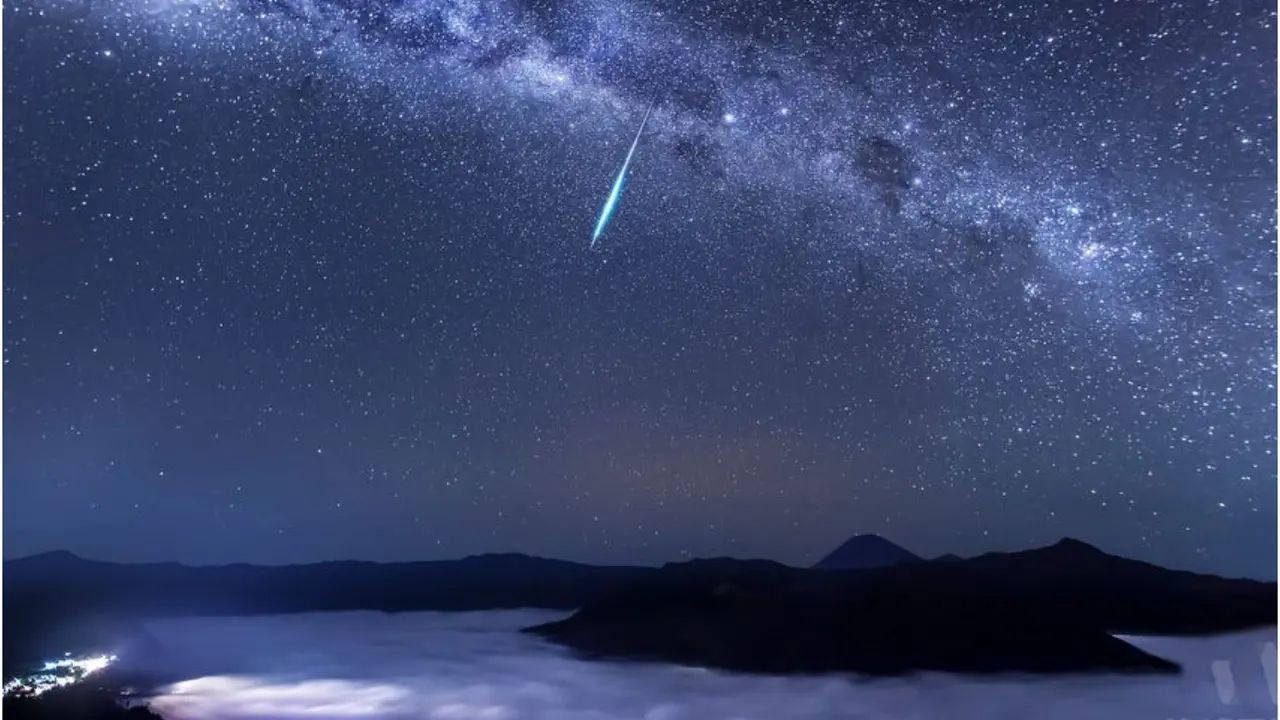Updated 3 May 2025 at 11:41 IST
Don’t Miss the Eta Aquarid Meteor Shower Peak Monday Night: Here’s How to Watch
The Eta Aquarid meteor shower, sourced from Halley’s Comet, peaks in May with bright, fast meteors.
- Science News
- 2 min read

Every year, Earth gets a spectacular cosmic treat as the Eta Aquarid meteor shower lights up the night sky. This stunning event is caused by the debris from Halley's Comet, which visits our planet roughly every 75 years. Even though Halley's Comet isn’t visible every year, its leftover debris creates a dazzling show of shooting stars during the Eta Aquarid meteor shower each May.
According to Shauna Edson from the Smithsonian’s National Air and Space Museum, watching these meteors is like seeing Earth cross paths with one of the most famous comets in the world.
Meteor expert Bill Cooke from NASA describes the Eta Aquarids as known for their speed and brilliance. On the peak night, which is expected early Tuesday morning, you may be able to spot between 10 to 15 meteors per hour under perfect conditions. However, this year’s display may be a bit dimmed due to a bright moon, which will be nearly two-thirds full and could wash out the faintest meteors.
The meteor shower is expected to last through May 28, giving skywatchers nearly two weeks to catch a glimpse of this cosmic event.
Advertisement
Meteor showers occur when Earth passes through the debris trails left behind by comets or asteroids. For the Eta Aquarids, the source is Halley’s Comet. As the debris enters Earth's atmosphere at high speeds, it burns up due to friction with the air, creating the bright flashes we see as "shooting stars." Sometimes, the light is so bright that it leaves a glowing trail across the sky.
No telescope is needed to view the meteor shower. All you need is a dark spot away from city lights. The best time to watch is in the early morning, just before sunrise, when the sky is darkest and the moon is low.
Advertisement
Experts recommend putting away your devices and allowing your eyes to adjust to the dark for the best experience.
If you miss the Eta Aquarids, don’t worry nature will treat you to another meteor shower in late July, the Southern Delta Aquarids, offering another chance to enjoy this cosmic show.
Published By : Navya Dubey
Published On: 3 May 2025 at 11:41 IST
